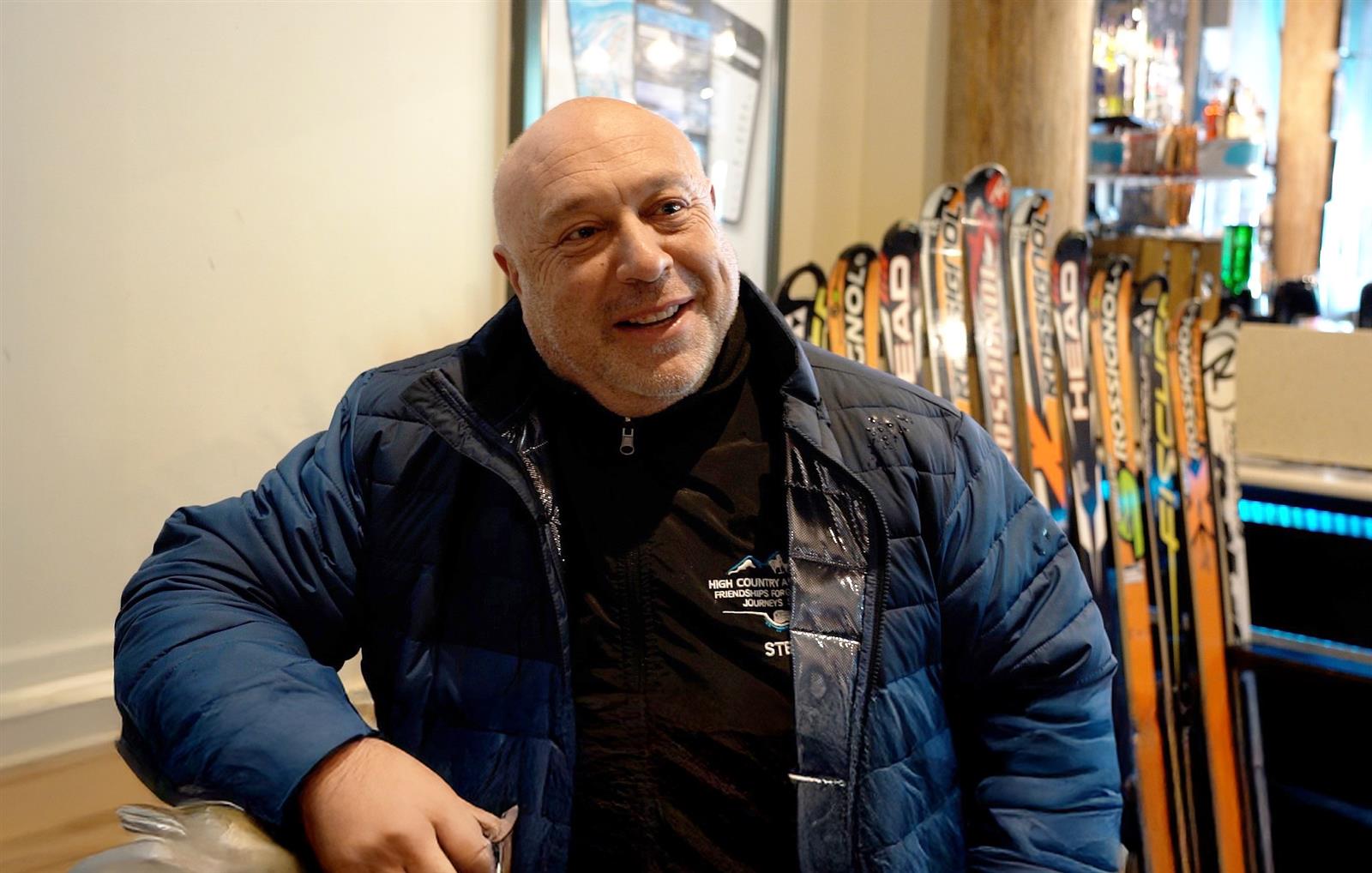Community safety in the alps

The 2019-20 fires were the catalyst for Steve Belli’s interest in community resilience and recovery.
At the time, Steve lived part-time in Dinner Plain but wasn’t a CFA member.
“My interest really gathered momentum during those fires. I could see there was a need for more resources, more equipment and better communication between the emergency services and the community,” Steve said.
“As the president of the Mount Hotham Chamber of Commerce, I initiated fundraising for Mount Hotham-Dinner Plain brigade and we raised more than $100,000 thanks to our generous community and people from afar.”
Steve has been a local resident and business owner at Mount Hotham since 2012. He set up a snow park for families to do activities other than skiing and snowboarding, he does tours on snowmobiles and has a café and distillery at Dinner Plain.
Steve believed the public and businesses at Mount Hotham needed more information during a fire and have a stronger voice in the recovery stage. He participated in a Victorian Government initiative that asked locals for feedback about safety, and this led
to the formation of the Alpine Community Recovery Committee (ACRC) in 2020.
Community recovery committees ensure grants and programs are relevant to a particular community through a community-led approach to recovery. Steve was asked to join the ACRC.
“The ACRC is a voice for the community to the government to discuss grants, programs for mental wellbeing, and infrastructure that needs to be replaced,” Steve said. “It also encourages emergency services to talk to the community.
“We helped to open a communication channel between emergency services personnel and the community so that the emergency services had a really good understanding of the issues in this area.”
Historically, alpine resorts couldn’t apply for recovery funding through the local funding and federal funding authority. Steve was instrumental in changing that.
“The resorts, lift companies, Chamber of Commerce and community members campaigned for change. Previously, alpine resorts couldn’t access 90 per cent of grants. Now we can access 90 per cent and we have received about $17 million funding for things like new water tanks, tourism initiatives and new infrastructure. That was a big win.”
Steve is also a member of two municipal emergency management planning committees (MEMPC). All emergency services are represented on the committees, including direct representation of locals through the Chamber of Commerce or through the Alpine Resilience Partnership.
“When we surveyed our community, we found that many people didn’t know where to get correct information during a fire and recovery, or who they should talk to,” Steve said. “Emergency services produce a lot of information, yet the community said they didn’t know where to find it.
“To combat this, we created The Loop – a community communications network. When emergency services want to reach the community, they send the information to the Loop. It is then passed onto community members through community connectors – they could be a hairdresser, a guy in the pub or someone of standing in the community.
“The crucial information is passed onto locals in a way that makes sense and that the community understands. It’s much more powerful than putting up a poster that might not be read.”
An administrator is in contact with the emergency services to make sure information is added to The Loop. Official messaging for emergency incidents is not submitted to The Loop – community members are referred to the VicEmergency website and app for information about current incidents.
As well as improving community safety through his committee work, Steve also enjoys doing face-to-face engagement.
“I want people to have a great and safe experience in the mountains. I became a CFA member in 2024 and I’m happy to sit on a truck and answer questions to the best of my ability,” Steve said. “I help with community-based events such as barbecues and I enjoy giving people accurate information.
“I also explain why cars need chains on their tyres. Some people don’t understand their importance and we want to keep people safe. There are two checkpoints on our mountain and a significant number of cars are turned around for not having chains.”
When asked why he spends so much time protecting community members, Steve simply said, “if it’s not you, who is it?”
| Submitted by |
News and Media |